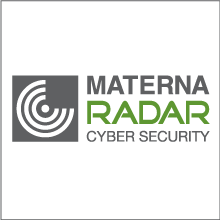Tom is one of the youngest members of the Radar Cyber Security team and known as a true talent in the security scene. In 2020 he and a fellow Radar colleague won third place in a threat hunting competition. Tom talks about his career path to becoming a Chief Security Analyst.
How does one become a Chief Security Analyst?
After my education at HTL Rennweg in Vienna, majoring in Information Technology and Network Engineering, I did a few internships, e.g. at Siemens and PKE. My journey with Radar Cyber Security started in 2018 and continued after an 8-month break in 2019. During these 8 months, I performed my basic military service at the Austrian Armed Forces at their Cybersecurity Center, where I was able to acquire very valuable skills in a short period of time. Upon my return to Radar in the fall of 2019, those new skills came into use. Finally, my enthusiasm for the topic of Cyber Security led me to the University of Applied Sciences St. Pölten, where I am currently studying in a part-time program.
What exactly is your current job and role as a Chief Security Analyst at Radar?
It’s a very diversified job, where you deal with a wide range of daily challenges on the subject of cyber security for our customers. Every day brings new excitement since every company operates in different conditions. You are the main technical point of contact for IT specialists of organizations when it comes to cyber security. Through frequent customer jour fixe meetings, the current security situation of the respective company is discussed in order to support our customers in prioritizing and working through vulnerabilities in the best possible way. Our goal is to constantly analyze the security capabilities of our Managed Security Service customers in order to minimize the surfaces for cyber attacks.

What do you like about working in the Radar team?
It is a very exciting place to work and that brings many new learning and success experiences every day. Therefore it never gets boring. I particularly appreciate the team culture and the way we work together. We cooperate very closely and the mutual support for different problems works very well. An open culture of discussion ensures that each individual is heard, can contribute and eventually make a difference. That is very valuable.
What challenges do you see analysts in the cybersecurity industry currently facing?
Attacks are constantly becoming more sophisticated. The integration of operational technology (OT) into IT networks becomes increasingly important, as the manufacturing industry is also a popular target for attackers. I see an urgent task in catching up regarding this field in Austria and Europe.
Also this requires trained specialists, right?
Specialists in the cyber security sector are hard to find in Austria, especially where combined knowledge of IT and OT security is required. Setting up your own Cyber Defense Center or Security Operations Center is often a major challenge and very costly. Many companies therefore turn to Managed Security Service Providers (MSSP) like us.
What tips do you have for future candidates applying for analyst jobs at Radar?
In my opinion, you most importantly have to demonstrate motivation and a basic knowledge of IT and network technology. A basic understanding of the most common attack vectors and problems in IT Security is also needed. Expressing all that definitely scores points in your application.

